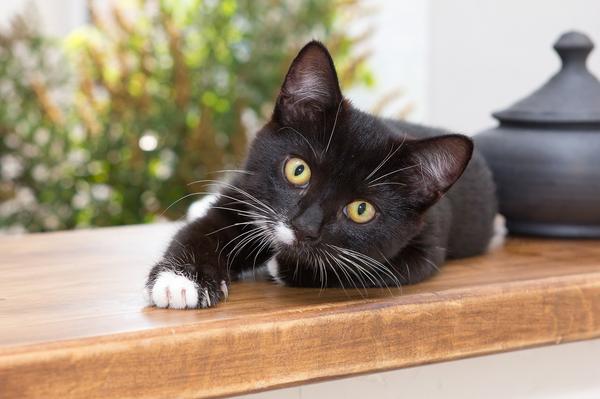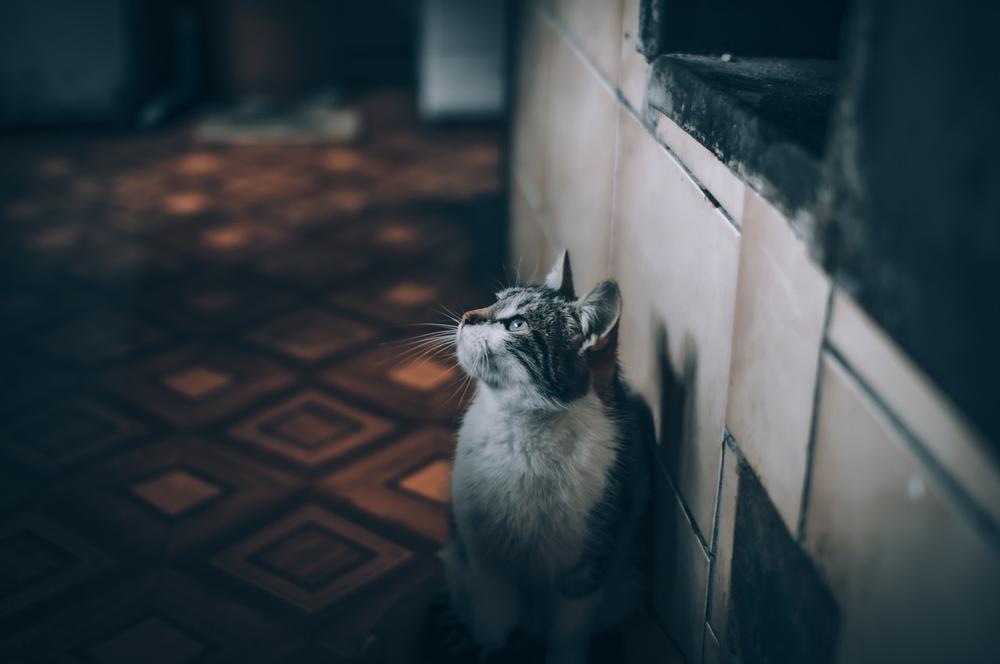Can Cats Get Kennel Cough? (Symptoms, Causes, Treatments)

Ever wondered if cats can get kennel cough?
Are you worried sick about your feline friend's health? 🐱
I get it.
I've been there too, tossing and turning at night, fearing the worst.
But fear not, my friend, because today I'm going to answer all your burning questions about kitties and kennel cough.
So sit tight and get ready for some peace of mind.
Let's dive in, shall we?
Can Cats Get Kennel Cough?
Although less common than in dogs, cats can still contract kennel cough caused by Bordetella bronchiseptica. This respiratory infection is a concern for kittens, senior cats, and those with weakened immune systems. You ought to observe for respiratory symptoms and take preventive measures.
Though cats are less commonly affected by kennel cough compared to dogs, it is still possible for them to contract the infection. When it comes to kennel cough, cats can't be fully let off the hook like this.
Kennel cough, also known as infectious tracheobronchitis, doesn't discriminate between cats and dogs.
It's caused by the bacteria Bordetella bronchiseptica and can affect both of our furry friends.
Although it's more common in dogs, we can't let out cats completely off the hook.
It's a particular concern for kittens, senior cats, and those with weakened immune systems.
So if you have any cats in these age categories or someone who's not feeling their best, you might wanna keep a closer eye on their respiratory health.

Although kennel cough is rarely seen in adult cats, you should still observe for respiratory symptoms in all feline age groups. Don't disregard the signs, especially in young cats or those with underlying health conditions.
And remember, prevention is key!
Keep your cats away from infected animals, limit their contact with other cats when they're sick, and make sure they're up-to-date on vaccinations.
It's better to be safe than sorry.
And if you're wondering about an interesting feline behavior that could indicate if your cat is sick or in pain, I have just the answer for you.
Head over to my article, Do Cats Purr When They Are Sick or in Pain, where I provide insights and expert advice on this topic.
Satiate your curiosity and find out what your cat's purring really means in different situations.
Can Your Cat Catch Kennel Cough From Your Dog?
Let's cut to the chase.
Can your cat get kennel cough from your dog?
It's a bit unclear, to be honest.
While there's not enough scientific proof that cats can catch kennel cough from dogs, they can carry similar respiratory viruses.
So, it's not completely impossible.
But here's the thing—you should worry more about catching kennel cough from your infected pet than cats spreading it among themselves.
Healthy adults rarely get seriously sick, but it's better to play it safe.
Now, kennel cough is something you need to watch out for in your cats and dogs. It can even lead to pneumonia, especially in young kittens, older cats, or ones with weakened immune systems.
So, keep an eye out if they start showing strange symptoms like coughing, sneezing, or leaking noses.
The disease spreads through the air in stuffy spaces without enough circulation, as well as on surfaces and objects.
That means both cats and dogs can pass it back and forth.

If there's a risk of infection, it's best to keep them apart until they're fully recovered.
Let me tell you, kennel cough is ridiculously contagious—even across different species.
In places like animal shelters where many animals live together, cats with Bordetella bronchiseptica can spread it to healthy cats.
Those sneaky pests, huh?
So, how does it actually spread?
Through coughing, sneezing, direct contact, and contaminated objects.
The Bordetella bacteria responsible for kennel cough can survive on surfaces for up to two weeks.
That's why good hygiene matters—clean those objects and wash your hands often.
Although cats usually don't catch kennel cough from dogs, they can still carry other common viruses with similar symptoms.
So, stay vigilant and keep an eye on your furry pals.
But what about the symptoms, causes, diagnosis, and treatment options for kennel cough in cats?
Well, let's dive right in and find out what you need to know to keep your furry friend healthy!
Is It Contagious?
To stop the spread of kennel cough, here's what you need to do:
- Don't get too close to sick animals.
- Skip the shared water bowls and toys.
- Keep your pet's living area super clean and germ-free.
- Scrub your hands like crazy after touching other animals.
- Quarantine infected pets to halt the transmission.
- Stick to the treatment plan given by your vet.
- Get your pet vaccinated against kennel cough.
Prevention is key!
By following these steps, you not only shield your furry pal but also safeguard others in your community.
Don't risk spreading infections, my friend.
Stay alert and put your fluffy companion's well-being first!
Symptoms of Kennel Cough in Cats
To identify kennel cough in cats, keep an eye out for these 10 symptoms:
- Frequent coughing.
- Sneezing with nasal discharge.
- Lethargy.
- Fever.
- Throat and upper respiratory tract infection.
- Coughing.
- Nasal discharge.
- Fever.
- More severe symptoms in kittens, older cats, and those with underlying health conditions.
- Laboratory testing to differentiate between kennel cough and cat flu.
Don't mistake coughing as a mere hairball issue.
Kennel cough exhibits other indications too, including respiratory problems and occasional sneezing with nasal discharge.

But how can you protect your feline companion from kennel cough?
You need to understand the causes, diagnosis, and treatment options.
Let's explore these in depth so that you can ensure your cat stays healthy and happy!
How Can I Prevent My Cat From Catching Kennel Cough?
To prevent kennel cough in your cat, here's what you need to do:
- Always make sure to wash your hands after dealing with sick cats and clean anything they've come into contact with.
- Keep your cats indoors to limit their exposure to potential sources of infection.
- Give them food that smells strong or is warmed up - it can help relieve their nasal symptoms.
- If possible, use a humidifier or let them spend time in a steamy bathroom to soothe their respiratory issues.
- When walking them, use a harness instead of a collar and leash - it puts less pressure on their neck and throat, reducing coughing.
- Take care of their diet, exercise, mental stimulation, and emotional well-being. A healthy lifestyle boosts their immune system.
- Vaccinate them against respiratory diseases. Although there isn't a specific vaccine for kennel cough, getting shots for herpesvirus and calicivirus is a good idea.
- Make sure their standard vaccines are always up to date. This helps prevent various illnesses, including kennel cough.
- If you have a sick cat, isolate them from other pets and practice good hygiene. Stopping the spread of kennel cough is crucial.
- Consider adopting from shelters. Cats adopted from there often have vaccinations already and are less likely to develop kennel cough.
Decreasing the likelihood of your cat contracting kennel cough can be achieved by adhering to these guidelines. ✨
How Is Kennel Cough Treated?
When it comes to treating kennel cough, you have several options:
- Antibiotics can clear up the bacterial infections caused by kennel cough and help your furry friend recover faster.
- Anti-inflammatory medication reduces fever and discomfort, making your pet feel better.
- Mucolytics help clear mucus and congestion, improving breathing and overall well-being.
- Mild cases can resolve on their own with rest and keeping your cat away from other pets.
- Severe cases may require cough medication and antibiotics that are safe for pets. Avoid using human medicine.
- Providing supportive care like rest and love is crucial for recovery.
- Diagnosis involves tests like throat swabs, physical exams, bloodwork, x-rays, or tests for other diseases. This ensures accurate treatment.
- Steam can help clear mucus, but avoid using human cough suppressants.
- Offering fresh water and soft foods or treats improves your cat's well-being during their battle with kennel cough.
- Remember, cats with weakened immune systems are at higher risk. Extra precautions and proper care are essential for recovery.
With the right treatment and care, your feline friend will bounce back from kennel cough quickly. 👍
Do NOT Miss Out: Further down the blog post, I'll provide crucial information about when you should see a vet for your cat with kennel cough. Keep reading to ensure your furry friend gets the best care possible.
So, now that we've covered the various treatment options for kennel cough, you might be wondering how long it typically takes for our feline friends to recover.
Well, get ready for some interesting facts because the duration of this condition can vary greatly!
Whether your cat has a strong immune system or not, the recovery time and potential complications can surprise you.
Let's dive into the details together!
Duration of Kennel Cough
Kennel cough usually lasts around 7-10 days.
So, you've got a sick kitty and you wanna know how long it's gonna take for them to feel better.
Well, most cats with kennel cough start feeling good in about a week or so.
It's like a little cold for cats, just no runny nose or sneezing (not all the time at least).
Some cats might take longer to recover though.
Don't worry if your furry friend seems under the weather for a couple more weeks.
It just means their body is taking a bit more time to fight off those pesky germs.
Every cat is different.
While most cats will be back on their paws within 10 to 14 days, some may need more time. Especially young cats and cats with weak immune systems can take longer to get better and may also experience complications along the way.
So, my fellow cat parents, be patient and understanding during this time. Your kitty just needs a little extra love and care to feel purrfect again!
But wait, what if your cat is showing signs of kennel cough that are more worrisome than just a persistent cough?
Let me tell you why you need to consult with a veterinarian for an accurate diagnosis and treatment...
Should You See a Vet?
If your cat has a persistent cough, you must see a veterinarian right away.
Coughing in cats can indicate kennel cough or more serious conditions like influenza, asthma, or heart disease.
Only a professional can accurately diagnose and treat your furry friend.
Kennel cough may suggest the presence of those illnesses, so seeking medical advice for your feline is crucial.
Key Takeaways
Key Takeaways:
- Kennel cough can affect both dogs and cats, although it is more common in dogs.
- Cats can spread kennel cough to dogs, but it is rare for cats to catch it from dogs.
- Kennel cough is especially concerning for kittens, senior cats, and those with weakened immune systems.
- Kennel cough can spread through the air, direct contact, and contaminated surfaces.
- Symptoms of kennel cough in cats include sneezing, coughing, nasal discharge, and lethargy.
- Kennel cough can be prevented by maintaining good overall health, keeping cats indoors, and practicing good hygiene.
- Treating kennel cough in cats may involve antibiotics, anti-inflammatory medication, mucolytics, and supportive care.
- Recovery from kennel cough can take 7-10 days, but may be longer for cats with weakened immune systems.
- A vet visit is necessary if a cat has a cough, as it could indicate a more serious condition.
And that wraps up today's article.
If you wish to read more of my useful articles, I recommend you check out some of these: Can Cats Drink Tap Water, Can Cats Drink Fish Tank Water, How Long Can a Cat Survive Locked in a Shed, My Cat Has Worms How Do I Clean My House, and Why Is My Cats Nose Bleeding
Talk soon,
-Sarah Davis